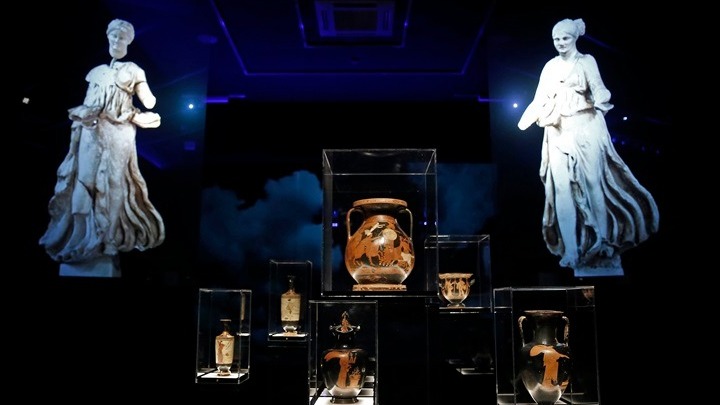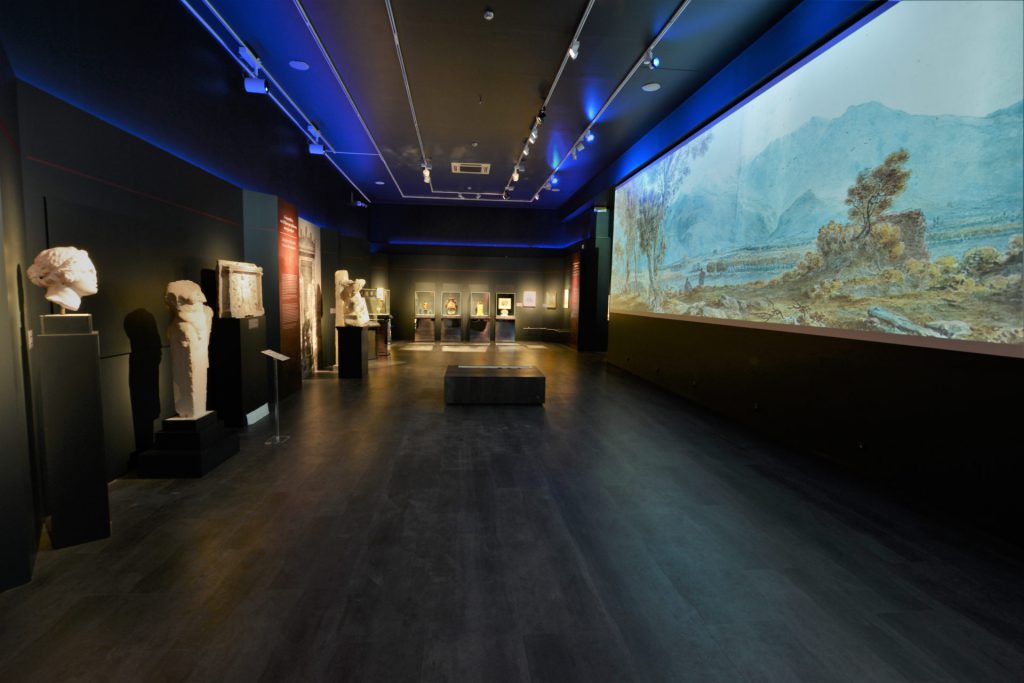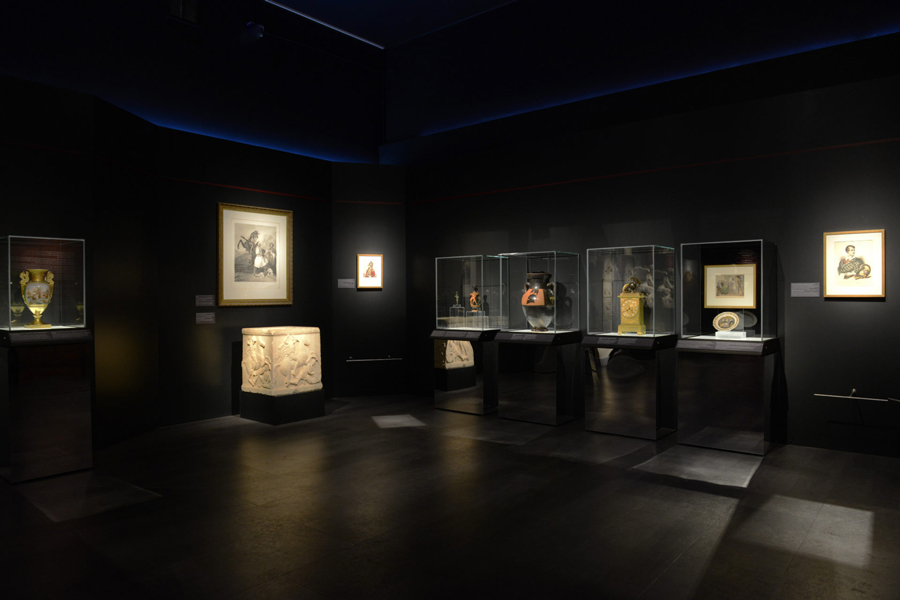After three months of COVID-19 lockdown, museums in Greece are scheduled to reopen to the public on June 15, 2020.
One of the shows worth (re)visiting is the temporary exhibition of the National Archaeological Museum (NAM) in Athens titled “For these we fought for… Antiquities and the Greek War of Independence,” which was opened as part of the Museum’s celebrations of the 200th anniversary of the Greek War of Independence.
The exhibition aims to elucidate the various aspects of the multidimensional relationship of the Greek people with antiquities, and is inspired by a phrase attributed to a legendary figure of the Greek Revolution, General Yiannis Makrygiannis, who advised Greek fighters not to sell or give away any of Greece’s antiquities.
Twenty-six selected antiquities (22 marble sculptures and reliefs, 2 clay vases, 2 bronze figurines) from the collections of the National Archaeological Museum are being showcased in an eclectic dialogue with twenty-six recent works of the 18th and 19th century, most of them by European artists: 8 paintings (oil and water color ones), 11 austere engravings, 4 illustrated editions and 3 artifacts of decorative art.
It is worth noting that the exhibition reaches its completion with the winged goddess Nike (the personification of victory) as an emblematic symbol of the Greek people’s successful struggle.
The special focus placed on the divine figure of Nike is also no coincidence as it is the connecting link with the Museum’s upcoming exhibition that shall be inaugurated on September 29 to mark the 2,500 years since the Battle of Thermopylae and Salamis.
As the Museum’s director, Maria Lagogianni, explains: “The concept of Nike will function as the connecting link between the different narratives of the exhibitions. The winged goddess of the Greeks will bridge the anniversary exhibitions, offering timeless symbols of those things that move and inspire people.”
READ MORE: The Battle of Thermopylae 2500 Year Anniversary Competition.
The exhibition “For these we fought for… Antiquities and the Greek War of Independence” has been scheduled to run until July 5, 2020. After it closes, it will be presented throughout 2021 as a digital exhibition on the Museum’s website.



